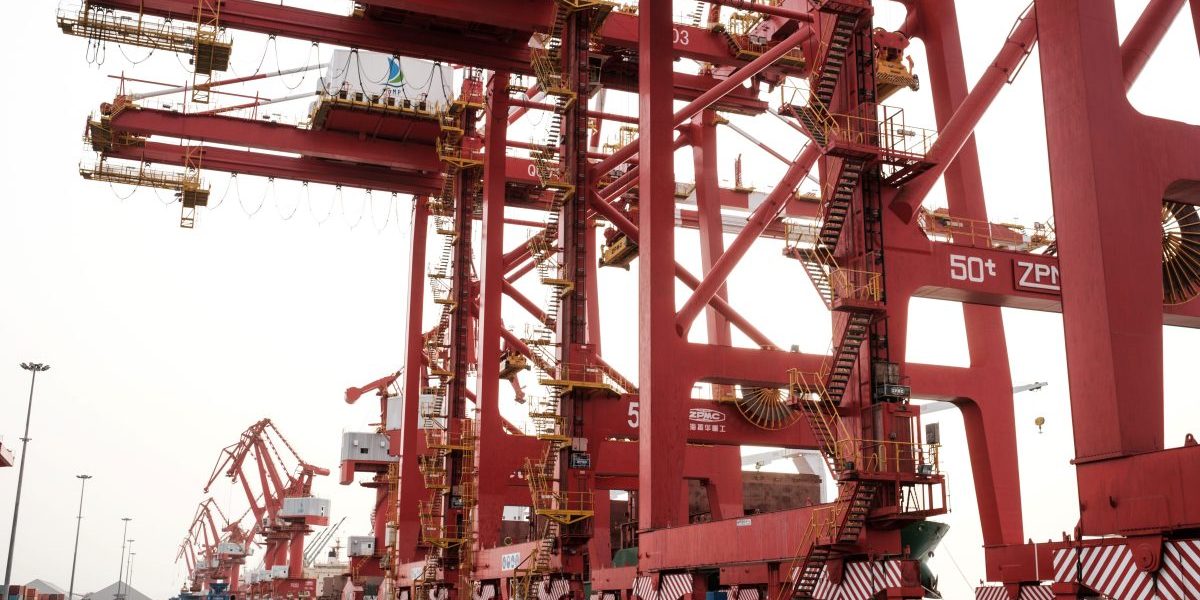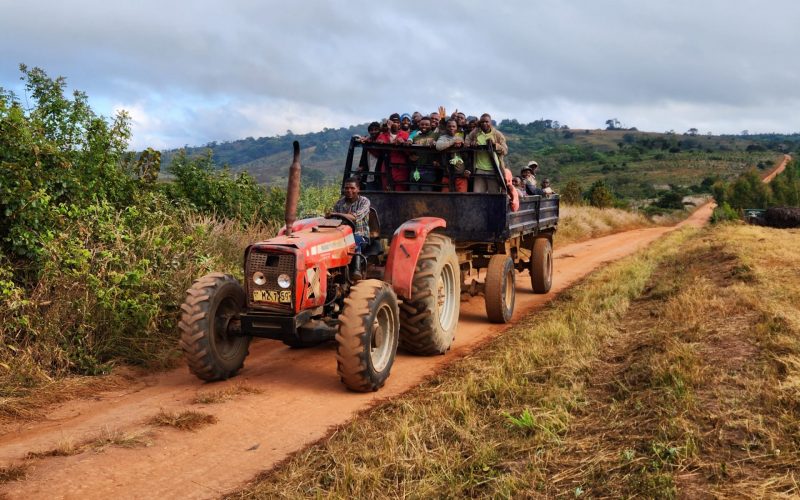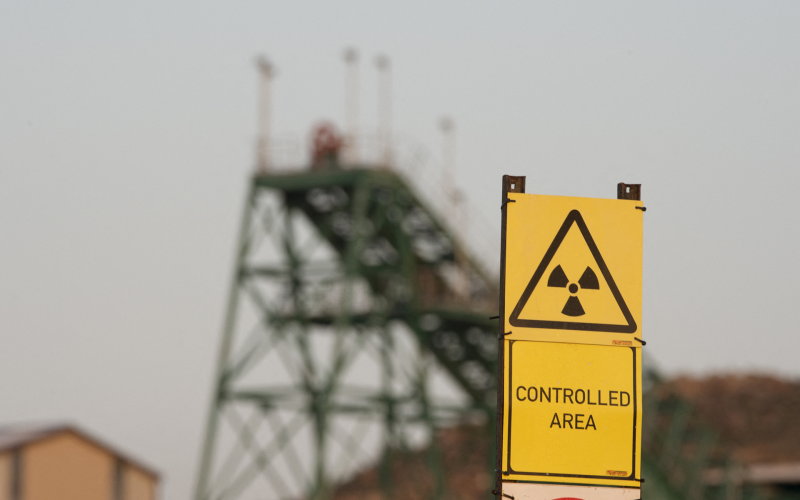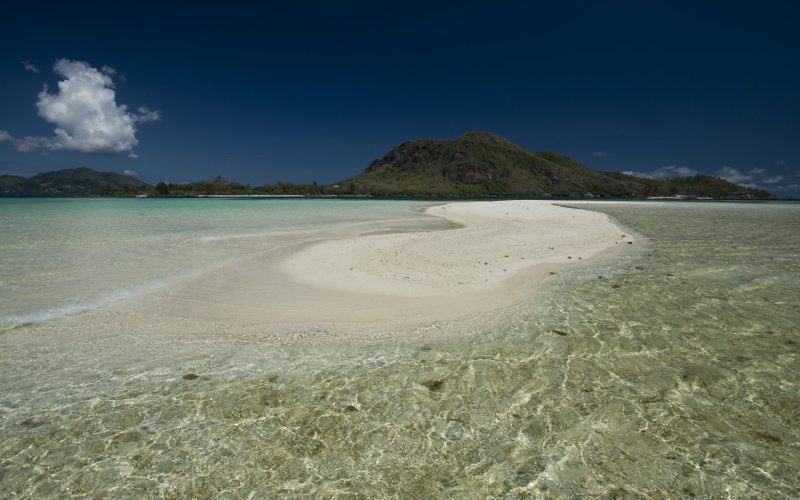Recommendations
- Landlocked states’ right of access to the sea is a general right, the terms and modalities of which must be determined by agreements between all concerned states.
- Landlocked states must ensure that their rights and interests are sufficiently considered and protected in such agreements.
- UNCLOS is prescriptive as to what may be included in such agreements. It is in the interest of landlocked states to consider these elements when negotiating agreements.
- African policymakers in both transit and landlocked states must facilitate agreements that are mutually beneficial. While it is an imperative for landlocked states to have access to and from the sea, the volume of goods handled at the port of the coastal transit state increases opportunities for port infrastructure investments and port concession contracts.
Executive summary
Landlocked states need access to the sea by means of transit through one or more neighbouring coastal states. Without this right of access, landlocked states would not be able to exercise their rights in terms of the 1982 UN Convention on the Law of the Sea (UNCLOS). Landlocked states’ right of access to and from the sea is confirmed by the existence of ‘freedom of transit through the territory of transit States by all means of transport’. UNCLOS further determines that the states concerned must enter into bilateral, sub-regional or regional agreements on the terms and modalities when exercising their UNCLOS rights. It is important to understand what should be considered and negotiated in these agreements.
Introduction
There are 44 landlocked 1UN, UN Convention on the Law of the Sea (December 10, 1982), art. 124(1)(a), https://www.un.org/depts/los/convention_agreements/convention_overview_convention.htm.states globally, 16 of which are in Africa. These states have no direct access to the sea and rely on neighbouring countries for passage through their territories to access the ocean.2James L Kateka, “Landlocked and Geographically Disadvantaged States”, in IMLI Manual of International Maritime Law, eds. David Joseph Attard, Malgosia Fitzmaurice and Norman A Martínez Gutiérrez (Oxford: Oxford University Press, 2014), 431.Geographically, landlocked states bear very little resemblance to one another. Some landlocked states are further from the sea than others, putting them at an even greater disadvantage, while others might be comparatively closer but with challenging topography and inadequate transportation infrastructure, resulting in high transportation costs.3Lesotho and Malawi are examples of two countries that are reasonably close to the sea.However, all landlocked states have one thing in common: they need access to the sea. Without such access landlocked states would be unable to import and export bulk goods, navigate the ocean or share in its living and non-living resources. This access is obtained via transit states – a ‘State, with or without a sea-coast, situated between a land-locked State and the sea, through whose territory traffic in transit passes’.4UN, UNCLOS, art. 124(1)(b). In turn, ‘traffic in transit’ is defined as ‘transit of persons, baggage, goods and means of transport across the territory of one or more transit States, when the passage across such territory, with or without trans-shipment, warehousing, breaking bulk or change in the mode of transport, is only a portion of a complete journey which begins or terminates within the territory of the landlocked State’.
The African policy approach, which has an integrated vision for the aquatic environment, is outlined in the 2050 Africa’s Integrated Maritime Strategy (AIMS), which uses the term ‘landly-connected’ states rather than ‘landlocked’. This underscores the fact that these states, although they have no coasts, are connected to the sea, but in a different way than coastal and island states.5Patrick HG Vrancken and Ernesta Swanepoel, “Landlocked States”, in The Law of the Sea – The African Union and its Member States, eds. PHG Vrancken and M Tsamenyi (Cape Town: Juta, 2017), 730.Without negotiating and entering into effective, mutually beneficial bilateral, sub-regional or regional agreements, the rights and duties of Africa’s ‘landly-connected’ states in relation to the maritime domain would have very limited practical value.
This policy briefing is aimed at African policymakers working towards promoting the maritime interests of landlocked states. It focuses on the provisions of UNCLOS, which provides landlocked states with freedom of transit and the right to access marine resources, and explores the provisions that should be included in agreements between landlocked and transit states.
UNCLOS and landlocked states
UNCLOS provides various rights of landlocked states: the right of ships flying the flag of landlocked states to ‘enjoy treatment equal to that accorded to other foreign ships in maritime ports’,6UN, UNCLOS, art. 131.the right of ships flying the flag of landlocked states to innocent passage through the territorial sea,7UN, UNCLOS, art. 17and freedom of navigation in exclusive economic zones (EEZ)8UN, UNCLOS, art. 58(1).and the high seas.9UN, UNCLOS, art. 87(1)(a), 90.UNCLOS also specifies that landlocked states have the same flag-state duties as coastal states.10UN, UNCLOS, art. 94Without access to the sea, it would be impossible for landlocked states to exercise any of these rights.
Freedom of transit
Reliant on transit states for access to the sea in order to import and export goods, landlocked states face an increase in time and cost to transport these goods and have a greater risk of loss of or damage to goods along the way. Other impediments include the need for a large road transportation fleet and the maintenance thereof, as well as the maintenance and upgrade of railroads. Landlocked states are also impacted by the political, economic, technical and governance situations in their transit states.
While UNCLOS provides a general freedom of transit, landlocked and transit states must enter into bilateral, sub-regional or regional agreements on the terms and modalities for exercising this freedom.11UN, UNCLOS, art. 125(2).
UNCLOS stipulates that these agreements may:
- provide for free zones or other customs facilities, for the convenience of traffic in transit, at the ports of entry and exit in the transit states;12UN, UNCLOS, art. 128.
- not provide for traffic in transit to be ‘subject to any customs duties, taxes or other charges except charges levied for specific services rendered in connection with such traffic’; and13UN, UNCLOS, art. 127(1)
- may not subject the means of transport in transit and other facilities, provided for and used by landlocked states, to taxes or charges higher than those levied for the use of means of transport of the transit state.14UN, UNCLOS, art. 127(2).
Another provision that should be included in the agreement is that the transit state shall take all appropriate measures to avoid delays or other difficulties of a technical nature that would negatively impact the transit of goods.15UN, UNCLOS, art. 130(1)Should delays or difficulties occur, the competent authorities of the transit and landlocked states concerned are required to cooperate towards their expeditious elimination.16UN, UNCLOS, art. 130(2)Transit states, in the exercise of their full sovereignty over their territory, shall have the right to take all measures necessary to ensure that the rights and facilities provided for in UNCLOS shall in no way infringe their legitimate interests.17UN, UNCLOS, art. 125(3)
It is important to note that UNCLOS does not require that traffic in transit use the shortest route. A longer route may be used if it is more economical; this of course depends on a number of factors, including available infrastructure and the maintenance and management thereof. An example is Zambia, where a large part of the traffic in transit continues to use the southern route through Zimbabwe, Botswana and South Africa, despite the fact that Zambia is surrounded by other coastal states that could provide a shorter route.18Vrancken and Swanepoel, “Landlocked States”, 730.
Access to living resources in the EEZs of neighbouring coastal states
Landlocked states have the right to exploit living resources of the EEZ of coastal states, as outlined in Article 69 of UNCLOS.19UN, UNCLOS, art. 69(1).However, this right is not straightforward and is subject to conformity to specific UNCLOS articles.20UN, UNCLOS, art. 69, 61, 62.In particular, it pertains to ‘an appropriate part’ of the surplus living resources of the EEZ of coastal states from the same sub-region or region. Landlocked states must participate ‘on an equitable basis’ in this exploitation.21UN, UNCLOS, art. 69(1). See also Article 62(2), which provides that, “[w]here the coastal State does not have the capacity to harvest the entire allowable catch, it shall … give other States access to the surplus of the allowable catch, having particular regard to the provisions of articles 69 … , especially in relation to the developing States mentioned therein”. See further UN, UNCLOS, art. 62(3).This must be done while taking into account the relevant economic and geographical circumstances of all the states concerned, as well as the provisions of Articles 69, 61 and 62.
This means that this right is subject to the duties of the coastal states with regard to the conservation and utilisation of the living resources in their EEZ.22UN, UNCLOS, art. 61–62. The limitation applying to developed landlocked states in Article 69(4) does not apply in Africa, where allthe landlocked states are developing.
The provisions of Article 69 raise a number of questions that fall beyond the scope of this policy briefing, but are nevertheless important to highlight:23Vrancken and Swanepoel, “Landlocked States”, 748.What constitutes an ‘appropriate part of the surplus’? What happens if there is no surplus? Is there an obligation under UNCLOS to ensure that there is a surplus?24WT Burke, “The Law of the Sea Convention Provisions on Conditions of Access to Fisheries Subject to National Jurisdiction”, Oregon Law Review 63 (1984): 98; Mohamed Dahmani, The Fisheries Regime of the Exclusive Economic Zone (Dordrecht: Martinus Nijhoff, 1987), 69. This view appears to have been conceded by Zambia (see UN, UNCLOS III, 104th plenary meeting 77 (UN Doc. A./CONF.62/SR.104 (1978), https://legal.un.org/diplomaticconferences/1973_los/vol9.shtml).If so, then this obligation is limited to cooperating with the other states concerned in the establishment of 25UN, UNCLOS, art. 69(3).
equitable arrangements on a bilateral, sub-regional or regional basis, to allow for participation of developing landlocked States of the same subregion or region in the exploitation of the living resources of the exclusive economic zones of coastal States of the subregion or region, as may be appropriate in the circumstances and on terms satisfactory to all parties.
This provision in itself raises more questions: Is there an obligation on states to reach equitable arrangements, or is cooperating towards reaching such arrangements sufficient? 26Burke, “The Law of the Sea Convention”, 99; Barbara Kwiatkowska, The 200 Mile Exclusive Economic Zone in the New Law of the Sea (Leiden: Brill, 1989), 71. A coastal state would be compelled to negotiate in good faith in terms of Article 300 of the UNCLOS. This would not allow the state “to reject an offer from [an] LLS [landlocked state], only to accept a similar or identical offer from another third State”. See RK Sizani, “The Law of the Sea Convention and the Rights of Neighbouring African Landlocked States to Fish in the South African Fishing Zone”, African Journal of International and Comparative Law 3 (1991): 515.Some of the terminology is not clearly defined: How does one define ‘concerned states’? What is considered as the ‘sub-region’ or ‘region’ in any specific case? 27Vrancken and Swanepoel, “Landlocked States”, 748.What makes an arrangement ‘equitable’ and ‘appropriate in the circumstances and on terms satisfactory to all parties’? 28Burke, “The Law of the Sea Convention”, 99
Assuming that the above questions are answered, Article 69 is prescriptive in stipulating that the states concerned shall establish the terms and modalities of such participation through bilateral, sub-regional or regional agreements, taking into account:29UN, UNCLOS, art. 69(2); Burke, “The Law of the Sea Convention”, 99–100.
- the need to avoid effects detrimental to fishing communities or fishing industries of the coastal state;
- the extent to which the landlocked state is participating or is entitled to participate under existing bilateral, sub-regional or regional agreements in the exploitation of living resources of the EEZ of other coastal states;
- the extent to which other landlocked states and geographically disadvantaged states are participating in the exploitation of the living resources of the EEZ of the coastal state, and the consequent need to avoid a particular burden for any single coastal state or a part of it; [and]
- the nutritional needs of the populations of the respective states.
Agreements between states in practice
Political will and mutual benefits are two key drivers of a successful agreement between a landlocked and a transit state.
Ethiopia and Djibouti signed an agreement on port utilisation and transit of goods towards Ethiopia in 2002. Based on the above UNCLOS principles, this agreement underpins the success of the Djibouti–Addis Ababa transport corridor and includes various terms and modalities of transit transport. In addition, it includes an institutional planning framework with a joint expert committee, which meets every three months, and a ministerial committee, which meets biannually. Both countries recognised the mutual benefits of this agreement: Ethiopia’s key interest is safe and competitive access to the sea, and for Djibouti the traffic in transit is a source of income, contributing 70% of the port’s income.
Agreements can also take the shape of a corridor agreement – a set of rules that regulates all the aspects of transport and the transport of goods via a given route, or corridor. The governments of Botswana, Namibia and South Africa initially signed a memorandum of understanding concerning the development of the trans-Kalahari corridor, which then led to the establishment of the Walvis Bay Corridor Group in 2000. This group consists of both public and private stakeholders along four transport corridors in Southern Africa. These transport routes all connect with the port of Walvis Bay in Namibia:
- Trans-Kalahari corridor (connects with Gaborone, Botswana; Johannesburg, South Africa);
- Trans-Caprivi corridor (connects with Lusaka, Zambia; Harare, Zimbabwe; Lubumbashi, Democratic Republic of Congo);
- Trans-Cunene corridor (connects with Lubango, Angola); and
- Trans-Oranje corridor (connects with Cape Town, South Africa).
The impacts of the establishment of this corridor group have been noticeable. The use of the trans-Kalahari corridor increased from 20% to 60% between 2000 and 2004 and the volume of containerised cargo doubled in Walvis Bay during 2001–2004.
Conclusion
While landlocked states have a general right in terms of UNCLOS to access the sea and its living resources, the practical application thereof is left to agreements to be entered into between the landlocked state and the transit states involved. In accordance with the relevant UNCLOS articles, states shall enter into these agreements to determine the ‘how to’ of these rights. While there is a legal obligation to enter into such agreements, and while there are some considerations provided by UNCLOS, there is no guarantee that the rights of landlocked states are protected. The actual terms to be included in the agreements are left up to the landlocked states to deliberate with their counterparts during the negotiations. In practice, therefore, the implementation of UNCLOS provisions related to the rights of landlocked states still relies to a significant degree on political will and existing favourable relations between the relevant states.
Acknowledgement
SAIIA gratefully acknowledges the support of the Swedish International Development Cooperation Agency (SIDA) for this publication.








